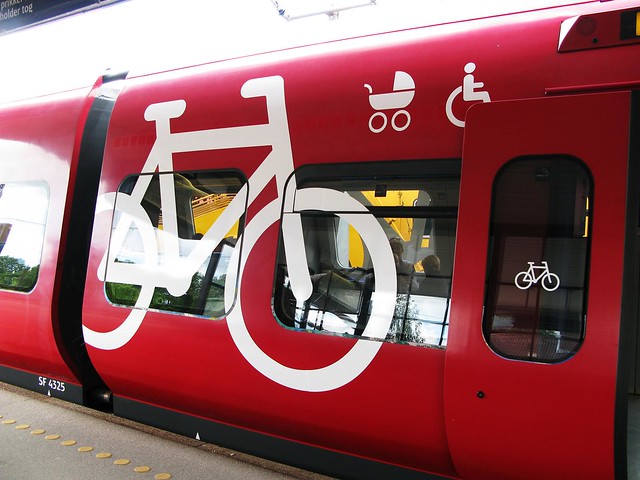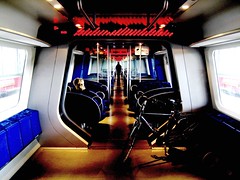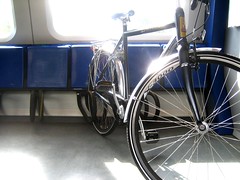
Danish State Railways [DSB] have been doing some good things for bicycles this year. First they made it free to take your bicycle on the S-Trains serving Greater Copenhagen. Now it seems that people transporting their bicycles by train can exploit their travel time a little more effectively.
DSB had a competition for customers where ideas for how to improve service were sent in. Four customers had the same idea and it was the idea that won.
Placing bicycle pumps in the existing bicycle compartments.
Not bad. Not bad at all.
The pumps will be installed in the new year. In addition, DSB are doubling the capacity of the so-called flex compartments to allow for even more bicycle capacity.


At left: A bicycle/pram/wheelchair compartment on a Copenhagen S-train.
At right: the flexible wheel holders hold the back wheel and allow for swaying movement.

When DSB announced that bicycles were now free on S-trains, they put up this tunnel on Nørrebrogade - the busiest bicycle street in the world - to advertise the fact. Brochures were handed out to cyclists at the red light a bit farther along. Read more about this right here.
Via: DSB's website: "Pump cyklen i S-toget"